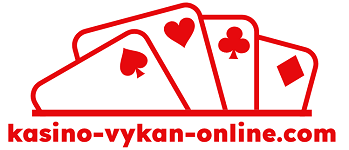When we first set out to master the game of poker, we quickly realized that the journey is as thrilling as it is challenging. Together, we embarked on a mission to unravel the mysteries of poker’s intricate rules, strategies, and nuances. We understood that to truly excel, we needed to go beyond just memorizing hand rankings or betting structures.
Our goal was to grasp the fundamental principles that govern the game, enabling us to adapt and think critically during play. As we dove deeper, we discovered that learning poker is not just about acquiring knowledge but also about cultivating intuition and honing our decision-making skills.
In this article, we aim to share the insights and techniques that helped us accelerate our understanding of poker. By focusing on the core elements and employing effective learning strategies, we believe anyone can:
- Quickly elevate their poker game
- Enjoy the thrill of the cards with confidence
By mastering these concepts, you can enhance your gameplay and experience the excitement of poker to its fullest.
Understanding Poker Fundamentals
Mastering Poker Fundamentals
To grasp the fundamentals of poker, it’s crucial to master the basic rules and hand rankings. When embarking on this journey, we’re not just picking up a game; we’re entering a community where strategy and camaraderie go hand in hand.
Understanding Foundational Rules
The first step is understanding the foundational rules. Poker, at its core, is about:
- Making the best hand
- Convincing others that we have the best hand
Familiarizing with Poker Variations
Start by familiarizing yourself with different poker variations:
- Texas Hold’em
- Omaha
Each variation has its own set of guidelines.
Learning the Betting Rounds
As you dive into learning poker, it’s essential to become comfortable with the betting rounds:
- Pre-flop
- Flop
- Turn
- River
Each round offers a chance to enhance your strategy and connect with fellow players.
Practicing and Building Skills
By practicing these basics with friends or online, you strengthen your skills. This practice helps you appreciate the shared experiences that poker fosters.
Building a Foundation
Together, we’re building a foundation that leads to a sense of belonging in the vibrant poker world.
Grasping Hand Rankings
To excel at poker, we must thoroughly understand hand rankings, as they determine the strength of our cards and influence our decisions at the table. By mastering these rankings, we become part of a community of confident players who know when to hold ’em and when to fold ’em.
In our journey of learning poker, recognizing the hierarchy from the royal flush to the high card is crucial. This knowledge not only enhances our strategic thinking but also fosters a sense of camaraderie as we engage in this timeless game.
Let’s break it down:
- Royal Flush
- Straight Flush
- Four of a Kind
- Full House
- Flush
- Straight
- Three of a Kind
- Two Pair
- One Pair
- High Card
By internalizing this order, we can evaluate the potential of our hands quickly and accurately. As we continue to play, these rankings become second nature, allowing us to make smarter, more informed choices.
Mastering Betting Strategies
To truly excel in poker, we need to grasp a variety of betting strategies that can maximize our winnings and minimize losses. Mastering these strategies isn’t just about knowing when to bet but understanding the psychology behind each move. By working together and sharing insights, we can create a community where everyone learns and grows.
Key Strategies:
-
Continuation Bet:
- After raising pre-flop, continue to bet on the flop, even if your hand hasn’t improved.
- This can pressure opponents into folding weaker hands.
-
Slow Play:
- Underplay a strong hand to lure opponents into betting more.
- This tactic can maximize your winnings when executed correctly.
-
Bluffing and Reading Bluffs:
- Knowing when to bluff and how to read our opponents’ bluffs is crucial for success.
By practicing these strategies, we sharpen our instincts and enhance our game. Let’s dive into poker with enthusiasm and a willingness to learn from each other. Together, we’ll uncover the intricacies of how to learn poker and become formidable players at the table.
Developing Critical Thinking Skills
Sharpening our critical thinking skills is essential for making informed decisions and gaining an edge in poker.
As we dive into the world of poker, we realize the importance of analyzing each hand while considering our opponents’ possible moves. This is where our community thrives—sharing insights, strategies, and experiences that help us all grow. By learning from one another, we foster a sense of belonging and camaraderie that makes the journey of mastering poker more rewarding.
Together, we can enhance our skills by:
-
Practicing evaluating odds and anticipating outcomes, which are crucial components of a successful poker game.
-
Challenging ourselves to think beyond the cards we hold and consider the bigger picture.
This mindset allows us to adapt to different playing styles and table dynamics.
As we continue to hone our critical thinking capabilities, we not only improve our poker skills but also strengthen the bonds with our fellow players. This creates a supportive environment where everyone can succeed.
Enhancing Decision-Making Abilities
Boosting our decision-making abilities in poker requires us to analyze situations swiftly and make choices with confidence. As a community learning the game together, we understand that poker is more than just cards—it’s about reading our opponents and the game itself.
When we focus on how to learn poker effectively, it’s crucial to:
- Sharpen our instincts
- Trust our gut feelings
In poker, every decision counts. By observing patterns in opponents’ behaviors and staying aware of the game flow, we gain valuable insights that guide our decisions. Practicing patience and knowing when to hold back or push forward are essential skills we develop as a group.
We learn from each other’s experiences by:
- Sharing strategies
- Discussing outcomes
- Improving collectively
By embracing our shared journey of mastering poker, we enhance our decision-making abilities together. This shared growth not only strengthens our skills at the table but also fosters a sense of belonging and camaraderie within our poker community.
Utilizing Effective Learning Techniques
To master poker efficiently, we leverage a variety of learning techniques that accelerate our understanding and skill development.
Active Learning:
- Play regularly and review our hands.
- Discuss strategies and outcomes with peers to gain different perspectives.
- Build camaraderie with fellow players.
Educational Resources:
- Immerse ourselves in poker literature, including books and online resources.
- Gain valuable insights into strategies and concepts applicable to real games.
Technology Integration:
- Use poker software and apps to simulate different scenarios.
- Practice without the pressure of real games.
By engaging in these methods, we cultivate a supportive community focused on collective growth. As we share our experiences and learn from each other, we strengthen our skills and foster a deeper connection to the game.
Cultivating Intuition in Poker
Developing intuition in poker requires us to trust our instincts and draw on the cumulative experience gained from countless hands and strategic encounters. There’s an inherent wisdom in our gut feelings that goes beyond textbook knowledge. As we immerse ourselves in the world of poker, learning to recognize patterns and subtle cues becomes second nature.
To cultivate this intuition, we need to embrace the community aspect of poker. Engaging with fellow players, discussing strategies, and sharing experiences enriches our understanding. Together, we create an environment where learning poker isn’t just about the cards, but about the connections we build and the insights we gather from each other.
We also need to actively reflect on our past games. By analyzing our decisions and outcomes, we sharpen our instinctual responses.
Steps to Enhance Poker Intuition:
- Reflect on past games to identify decision patterns.
- Analyze outcomes to understand instinctual responses.
- Trust your intuition during crucial moments, like deciding to fold or go all in.
It’s through this collective journey that we truly master how to learn poker quickly.
Accelerating Poker Game Proficiency
To accelerate our poker game proficiency, we should focus on consistently practicing key strategies and techniques.
As we dive into learning poker, let’s embrace the camaraderie of our poker community. Together, we can:
- Share insights
- Discuss strategies
- Learn from one another’s experiences
This approach strengthens our collective knowledge.
We can start by honing our understanding of:
-
Poker hand rankings and probabilities
This foundation allows us to make informed decisions based on the odds. -
Reading opponents
- Observing body language
- Analyzing betting patterns
- Monitoring timing
These skills help us anticipate opponents’ moves and reveal valuable information.
Let’s not underestimate the power of post-game analysis. Reviewing our hands and discussing them with fellow players helps:
- Identify strengths
- Pinpoint areas for improvement
Online forums and local clubs are excellent spaces for sharing insights and refining our skills.
By fostering a supportive environment, we’re not just learning poker; we’re building a community that thrives on shared growth and success.
What are some common mistakes beginners make when first learning poker?
When we first start learning poker, common mistakes tend to revolve around:
- Poor bankroll management
- Not understanding basic hand rankings
- Failing to control emotions at the table
These errors can lead to unnecessary losses and hinder our progress.
It’s essential to:
- Study the fundamentals thoroughly.
- Practice disciplined decision-making early on.
By recognizing and addressing these mistakes, we can accelerate our learning curve and improve our game.
How can I manage my emotions and avoid going on tilt during a game?
To manage our emotions and avoid going on tilt during a game, we focus on staying calm and composed.
Key Strategies for Emotional Management:
- Take deep breaths to center yourself.
- Remind yourself that emotions can cloud judgment.
- Take short breaks if needed to regain composure.
By maintaining a positive mindset and not letting emotions dictate our decisions, we improve our chances of making better plays at the poker table.
What are the best resources or books for learning advanced poker strategies?
When seeking advanced poker strategies, we find that some of the best resources or books come from renowned players and experts in the field.
They often share their insights, techniques, and experiences that can elevate our game to the next level. By studying these materials, we can:
- Deepen our understanding of complex strategies and tactics
- Improve overall gameplay
- Enhance decision-making skills at the poker table
Ultimately, these resources help us to become more proficient and strategic poker players.
Conclusion
Congratulations on completing this crash course in mastering the basics of learning poker quickly!
By understanding:
- Fundamentals
- Hand rankings
- Betting strategies
you’ve laid a solid foundation for success.
Remember to continue developing:
- Critical thinking skills
- Decision-making abilities
- Intuition in poker
With the right mindset and effective learning techniques, you’ll accelerate your game proficiency in no time.
Keep practicing and honing your skills to become a formidable poker player.
Good luck at the tables!

